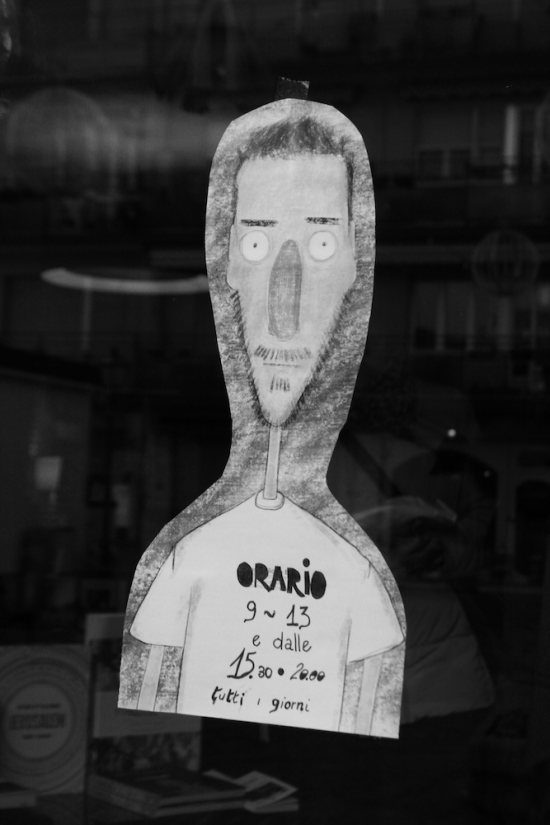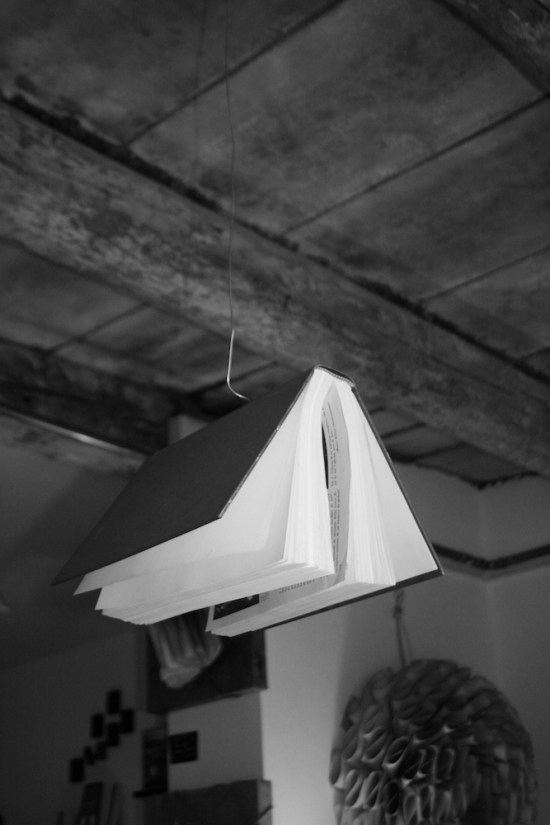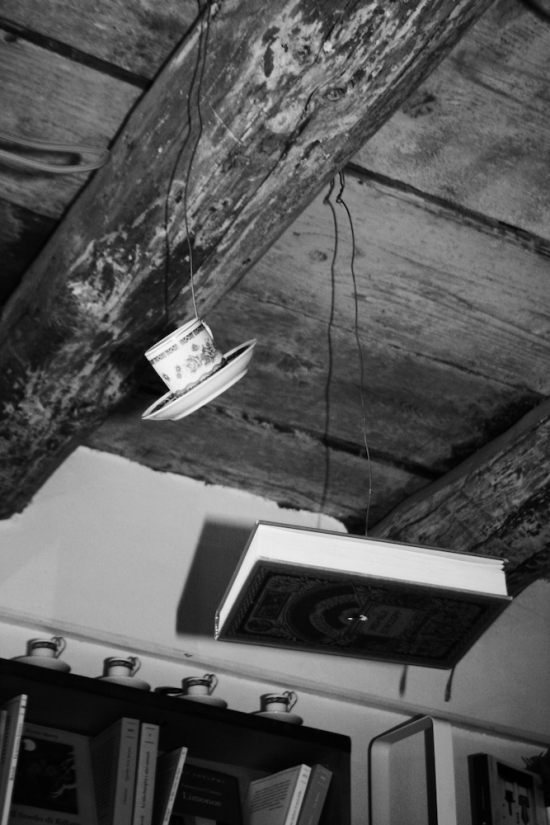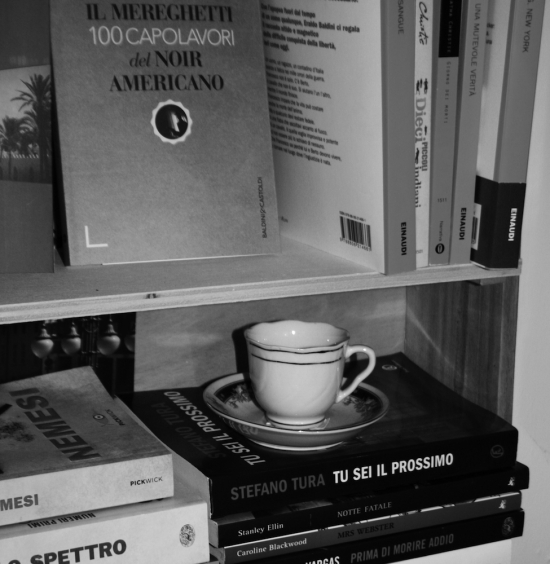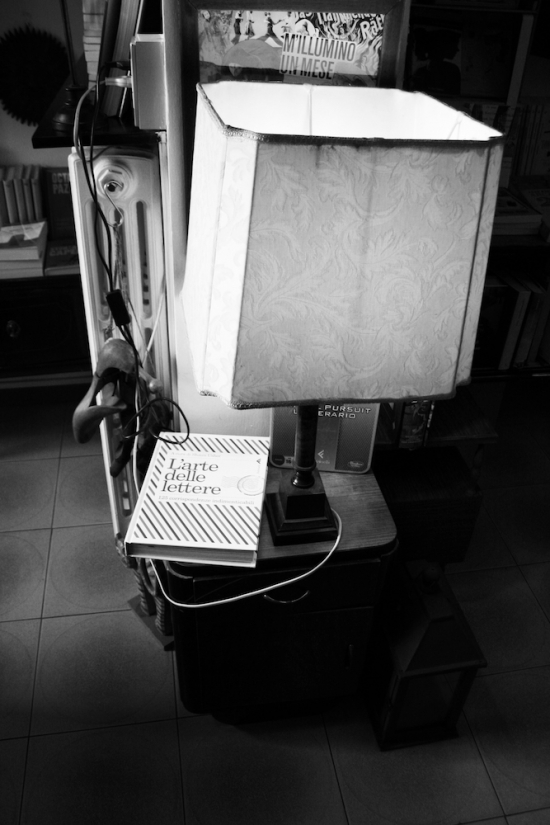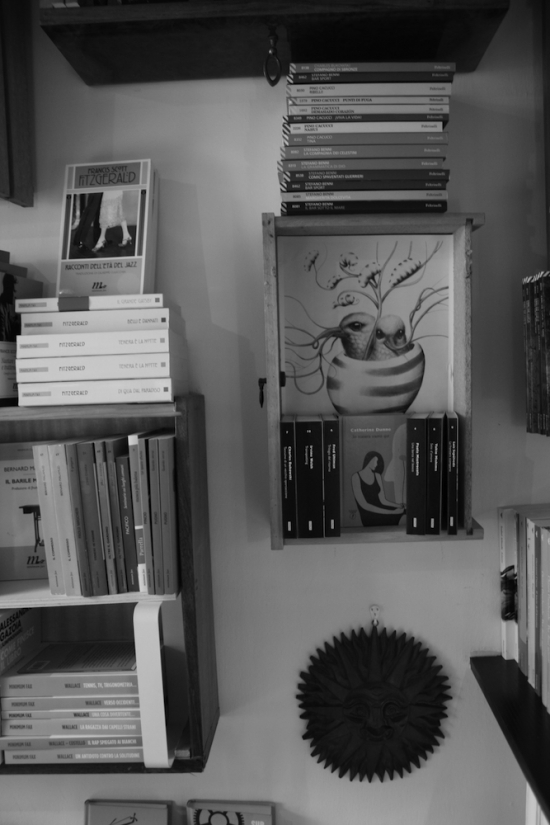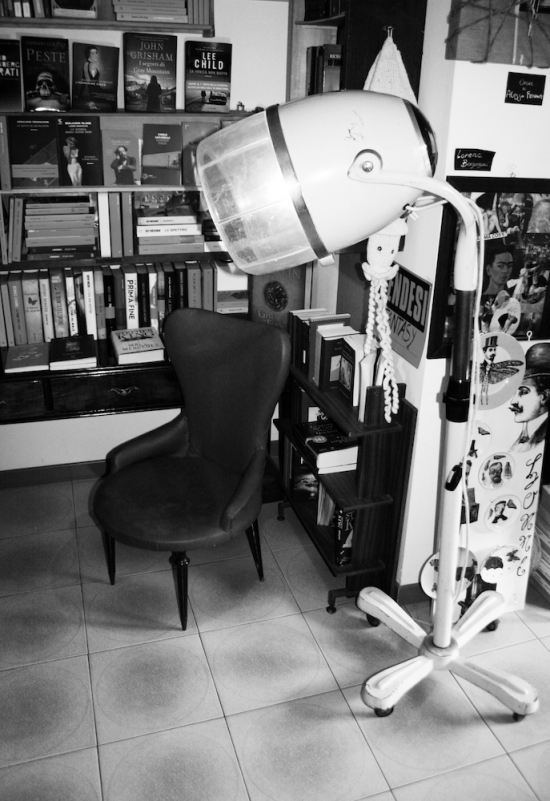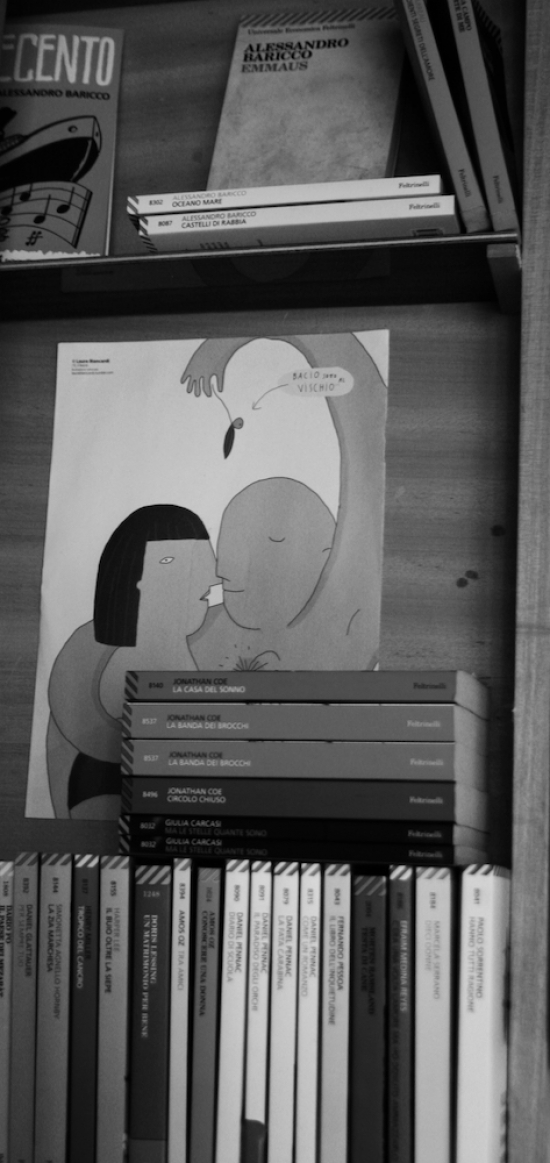Pagina 27 libreria indipendente
by Lina Vergara Huilcamán
Stéphanie, who was born in Paris, settled in Cesenatico and opened a small bookshop with her mother. She likes this small town as she finds it is on a human scale. Every morning she wakes up and walks along the little water channel to get to work and every day, if she wants, she can look at the sea. She is fond of books and paper, she doesn’t want to throw anything away so people usually bring her their old books. She doesn’t sell them but keeps those that are still acceptable in a small box, for anyone who wants them, and uses those that are at death’s door to gift-wrap, decorate the shop window... or she makes them fly on the bookshop’s ceiling! She creates wonderful gift-wrapped packages gluing over a base of kraft paper a page of one of the books she has given a new life, and it often happens that, as if by magic, the words written on that page become a message that sounds special to the person who receives it… they are simple packages, made with love, and therefore beautiful. It is very difficult to be simple says Stéphanie. Red and white large stripes entirely cover the wall behind the cash desk and I see some very singular plates on display, with shapes getting out of a plate and ending up on another... I am a bookseller and this is what I want to be clarifies Stéphanie when I point at the wall but I know many people, and I have got this wall where I can put items on display and sometimes sell them. My motto is why not, you’ve got an idea and want to share it with me and I wonder why not? She smiles and tells me sometimes you are swindled, but why not. It is a wall made for communicating ideas and sharing opportunities, and you perceive it at once. The timetable on the door – I didn’t notice it at first – is a page of #ILLUSTRATI... things must circulate she tells me.
I have been here for half an hour and little by little that blurred image becomes defined. I realize that there are small three-dimensional paper messages everywhere. Shelves are recycled pieces of furniture, bedside tables, bureaus, cupboards; drawers get out of the pieces of furniture and stick to the wall becoming little shelves beside the bedside tables, which have forgotten to keep their feet on the ground; shutters become strange frames that steadily support a book their bookseller is particularly fond of, a book that she wants to put on display. Chairs and small armchairs are everywhere, you cannot see them at once, they appear by magic beside the shelf on which there is a book that makes you wish to stop for a moment and leaf through its pages, and by magic and very discreetly invite you to make yourself at ease. There isn’t a precise division of the space, there are no barriers in any shape or form, children’s books can be taken by adults and books for adult readers are within children’s reach, in a mixture of attractions of any kind. They are numberless, although there is very little room, but we don’t realize it because the space is small but culturial connections (cultural + sensorial) that multiply make it two, three times as big... it is not the container that is big, it’s the ideas it contains that are endless. Stéphanie has fun, maybe too much, the bookshop is open everyday and she is too pale to live in the Riviera. She reads, she surfs the Internet, gets up-to-date, welcomes customers with a smile and without haste. Time seems to stop in this shop. It is a sort of slow-reading or slow-shopping, the opposite of supermarkets, of the clicks on computers that bring you the book at home and – if you are lucky – deliver it to the porter.
Pagina 27 is a cultural promenade where you can get contaminated, where you enter in search for contamination, because here it is impossible to remain concentrated on your own dull purposes. So the bookshop becomes a nice place where you can enter, steal a glance and even buy a book you would have never thought of buying. Animals are welcome too, even if they can’t read, but I wouldn’t be surprised if they learnt to read over time and became customers. We tend to think that in a small town there can’t be big shops, but maybe this happens because we are confused about the measures. We also think that in a small town that comes alive especially during the summer there are not strong readers. Maybe Stéphanie won’t get rich, in terms of euros, her total sales won’t be the same as those of a megastore in Milan, but if we compare these two kinds of shop, my question is: which of the two will create the greatest number of readers? And in the end what is the aim of a bookshop and a bookseller if not to earn a living (Stéphanie has opened a short time ago and in the worst period but, unlike the others, she never complains) and to stay alive over time with a clientele that visits her shelves generation after generation as if it were a tradition? In a context where what is temporary prevails, where buying is almost a stale bulimic act, the proposal of our Stéphanie is a spring morning sun and a lot of fresh fruit that is good for our immune system our skin and our intestine.
